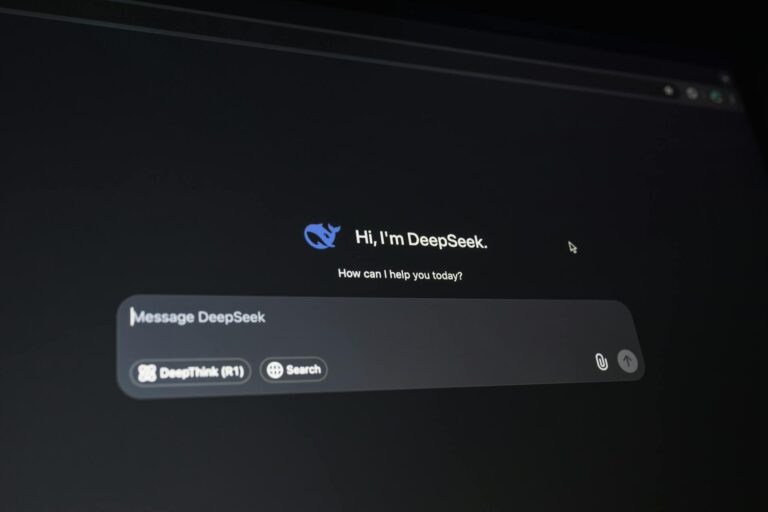
Even before the world was turned on its head with the COVID-19 pandemic, enterprises were increasingly looking to automate elements of their IT operations. But the spread of the virus and the ensuing move to remote working for great swathes of the global workforce has accelerated that need.
Freshworks, the customer service engagement company, had seen the demand for self-service and workflow automation tools pre-COVID and decided to make an acquisitional play for IT orchestration and cloud management platform Flint, a company that it already had a close relationship with having integrated a number of its tools into its Freshservice IT support software.
Speaking to Digital Bulletin about the agreement, Freshworks’ Chief Product Officer, Prakash Ramamurthy, says the impact of the pandemic has not been lost on the company, which has seen its workforce become distributed in a way that could never have been imagined.
“Like many companies today, we felt the pressure of today’s remote environment as we went from 13 workplaces to 3,000+ home offices in a matter of days,” he comments. “IT automation is vital to help accelerate the transition to a remote workforce and resolve service issues faster.
“If you’d have said just six months ago that we’d be onboarding employees without having ever met them, it would have seemed completely ridiculous, but we’ve hired a new head of product marketing and a new CFO [Chief Financial Officer]. It shows that a lot of IT processes need to scale, we need IT to be far more automated and set up for self service.”
The acquisition of Flint was finalised and announced at the beginning of July, some six months after the two parties opened discussions about the deal. Ramamurthy says there are three clear key factors that made the purchase so attractive.
“We firstly looked at the service automation element, so regular things like being able to reset someone’s password or automating in the backend when you have new employees onboarding and you need certain things to be provisioned. That reduces costs as well as getting rid of the need for humans to carry out what can be tedious and repetitive tasks,” he states.
“ITOM – IT operations management – is the second area. If you want us to run standard runbooks in response to alerts coming in and you want to build the intelligence to correlate them and order an action – running a script to spin up a container, for example – this orchestration will allow that.”
The third area that Ramamurthy pinpoints is cloud management and the optimisation of cloud delivery and spend, with Flint offering IP around discovery across the leading public cloud providers. It is an offering that is hugely valuable for customers that demand visibility of workloads across various clouds, which in turn can be used to drive cost optimisations.
Like many companies today, we felt the pressure of today’s remote environment as we went from 13 workplaces to 3,000+ home offices in a matter of days
“Flint has these capabilities and has built a number of adapters into cloud providers that we can use to bring everything together under a unified pane of glass. These are the areas we really want to integrate and get out of the market,” he says.
With many IT teams having their budgets reviewed because of falling revenues, automating certain processes and tasks makes more sense than ever. Automation tools are being used to free up often expensively assembled tech teams to work on more complex platforms and projects.
“IT folks are better off spending time in data analysis, bringing data together for their businesses to get valuable insights rather than resetting passwords, for example. Increasingly, business leaders are beginning to appreciate that so the tools that provide that are actually welcomed by the users. They realise that for a lot of our everyday tasks we just want to be able to use tools like Slack or Teams and be done with it,” says Ramamurthy.
The Flint acquisition is Freshworks’ third in just over 12 months after previous deals to buy AnsweriQ, a provider of machine learning (ML) and artificial intelligence (AI) for larger enterprises, and Natero, a customer success platform that merges ML for predicting behavior and big data analytics for deep customer insights.
Bringing AnsweriQ’s capabilities into the company has strengthened Freshworks’ AI engine, Freddy, by enabling enterprise organisations to fully leverage their existing customer data to scale self-service experiences and automate complex customer workflows.
Its Freddy platform incorporated AnsweriQ’s AI in May to learn from ticket data and agent actions within the Freshworks Customer-for-Life Cloud and improve customer self-service capabilities. Freshworks says that Freddy will extend its capabilities from a knowledge base-dependent AI engine to learn from ticket conversations on the fly.
“AnsweriQ is now part of our Freddy platform, which is a key differentiator across all of our product lines, and suite of AI capabilities that we have,” says Ramamurthy. “The AnsweriQ acquisition is being used in both customer support and ITOM so some of the technologies that we have will be used in ITOM, such as FAQs, can be used in for both an employee and customer context.”

Natero was integrated a few months earlier in February, a “huge rebranding success”, according to Ramamurthy, with its capabilities now baked into its Freshsuccess customer support platform. Its magic, he explains, is flagging up potentially significant customer issues before they become so big that they could scupper a business relationship.
“Natero has become an important component of our customer experience and customer engagement business unit where companies can proactively support clients. A lot of reactive solutions like ticketing, call and chat are social media based on the premise that customers will actually complain,” comments Ramamurthy.
“But customers usually express their displeasure through their actions and deeds, not their words. If a customer is unhappy with a tool, what is the first thing they do is not complain, but rather reduce their usage. We have the ability to help our customers integrate some of the key health metrics of their solution into Freshsuccess, which is the Natero product and have a health score that they can monitor proactively.
“If that score begins to deteriorate they can intervene and address any issues the customer may have well before the contract is coming up for renewal. That is a big part of our proactive support in the customer support business.”
At a time when many businesses are fighting to keep their heads above water, such tools could prove to be invaluable for their short to medium-term outlook. Looking forward, Ramamurthy believes one of the lasting impacts of the current global situation will be to have provided many enterprises with the springboard to enact lasting digital and business changes.
“Moving to the cloud and using cloud-based SaaS [Software-as-a-Service] solutions are accelerating because of COVID-19,” he surmises. “There was a swathe of companies already on the edge that had multi-month initiatives to think about these decisions but those decisions have clearly been accelerated because of what is going on in the wider world.”
“People increasingly want to use a SaaS solution rather than running them themselves on-prem. Take Freshworks as an example, we have nothing on-prem, so what we were able to do at the stroke of an email was move to a remote working model within a day and that is extremely powerful when times are so uncertain.
“There are a lot of trends that companies or executives can claim they saw coming but nobody can say that about COVID-19, so it has been a wake-up call for acceleration and transformation. To be fair, many companies have been thinking about digital transformation, and I don’t think the pandemic is especially making companies who had never thought about it all of a sudden consider it, but for those who were it has certainly proven to be a catalyst.”


